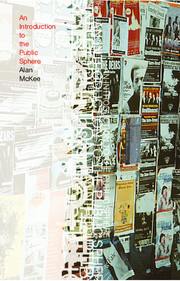3 - Spectacle
Published online by Cambridge University Press: 05 June 2012
Summary
Popular and academic writers on the public sphere agree on another problematic issue: there's a problem, they argue, not with just the kinds of topics that are currently discussed, but also with the way in which they're discussed. From a modern perspective, it seems that the public sphere promotes a ‘short attention span’ in consumers. Ideas aren't explored in detail or at length; they're packaged as thirty-second grabs. We're suffering from a plague of ‘soundbites’ (Slayden and Whillock, eds, 1999). As academic writers put this, the public sphere contains too much ‘spectacle’ (Kellner, 2003: 1). The media favour ‘showy’ (Jacoby, 1987: 223) presentation. Appearance is more important than substance, and ‘representation and appearances outweigh rational debate’ (Holub, 1991: 6). The detailed and rational presentation of information through the medium of the written word is vanishing, faced with media where ‘speed and intimacy prioritiz[e] trust and credibility over critical thought’ (Livingstone and Lunt, 1994: 163). Politicians become ever more powerful, putting on a ‘staged form of publicity’ (Habermas, 1997: 108) and audiences are encouraged into passive forms of ‘spectating over real individuation’ (Wilson, 1985: 205). In such a public sphere ‘Politicians appeal to potential voters not as rational beings concerned for the public good, but in the mode of advertising, as creatures of passing and largely irrational appetite’ (Garnham, 1990: 111). What has been lost is rational, logical, literate debate.
- Type
- Chapter
- Information
- The Public SphereAn Introduction, pp. 105 - 139Publisher: Cambridge University PressPrint publication year: 2004



